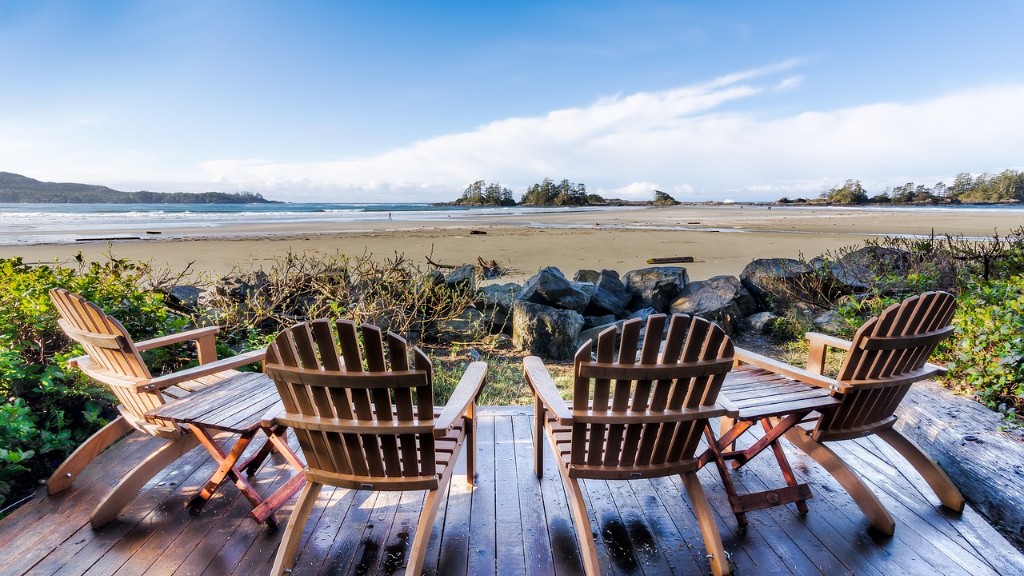How is living in Montreal, Canada?
Montreal, the largest city in the province of Quebec, Canada, is often known as the cultural capital of the country. With its unique blend of European charm and modern vibrancy, living in Montreal offers a variety of benefits and opportunities. From its diverse population and thriving arts scene to its rich history and delicious cuisine, Montreal has something to offer to everyone.
Background: Montreal, founded in 1642, is a city steeped in history. It has been shaped by various cultures, particularly the French and English, as evident in its architecture, language, and customs. Today, Montreal is a bilingual city, with both French and English being widely spoken. The city is known for its festivals, including the Montreal International Jazz Festival and the Just For Laughs Comedy Festival, attracting artists and visitors from around the world.
Population and Diversity: Montreal is a melting pot of cultures, with a population of over 1.7 million people. The city is home to a large number of immigrants from various parts of the world, contributing to its rich cultural fabric. The diversity is also reflected in the culinary scene, with an abundance of international cuisines available throughout the city.
Economic Opportunities: Montreal is a major economic center in Canada, with a strong focus on industries such as aerospace, technology, and finance. The city is home to several multinational companies, including Bombardier, CGI, and Cirque du Soleil. The job market in Montreal is competitive, especially for bilingual professionals, but the city offers ample opportunities for growth and development.
Housing and Cost of Living: Montreal is known for its relatively affordable housing compared to other major cities in Canada, such as Toronto and Vancouver. The city offers a range of housing options, from historic neighborhoods with charming townhouses to modern high-rise apartments. The cost of living in Montreal is also relatively lower, with affordable healthcare, education, and transportation options.
Education: Montreal is home to several top-ranking universities, including McGill University and Concordia University. These institutions attract students from around the world, contributing to Montreal’s vibrant and intellectual atmosphere. The city’s education system, from primary to tertiary levels, is renowned for its quality and accessibility.
Recreational Activities: Montreal offers a wide range of recreational activities throughout the year. In the summer months, residents can enjoy festivals, outdoor concerts, and picnics in the city’s numerous parks. In the winter, Montreal transforms into a winter wonderland, with activities such as ice skating, snowboarding, and the annual Igloofest, an outdoor electronic music festival.
Expert Perspective: According to Dr. Sarah Carter, a sociologist specializing in urban studies, “Montreal’s unique blend of cultures and its focus on arts and culture make it an ideal city for those seeking a vibrant and cosmopolitan lifestyle. The city’s bilingualism also offers an advantage to professionals looking to enhance their language skills and broaden their career prospects.”
The Gastronomic Delights of Montreal
Montreal’s food scene is a gastronomic delight, offering a blend of international flavors and local delicacies. From the iconic bagels and smoked meat sandwiches to poutine, a Canadian specialty, there is something to satisfy every palate. The city is also known for its thriving coffee culture and vibrant restaurant scene, with innovative chefs pushing the boundaries of traditional cuisine.
Italian Influence: Montreal’s Little Italy neighborhood is a haven for Italian cuisine lovers. Authentic pizza, pasta, and gelato can be found in the charming trattorias and gelaterias dotting the streets. The Jean-Talon Market, located in Little Italy, is a food lover’s paradise, offering a wide variety of fresh produce, cheese, meat, and spices.
Asian Fusion: Montreal is also home to a diverse range of Asian cuisines. From Chinese dim sum and Japanese sushi to Vietnamese pho and Thai curries, there is an abundance of options for lovers of Asian flavors. The city’s Chinatown is a popular destination for delicious and affordable eats.
Farm-to-Table Movement: In recent years, Montreal has seen a surge in restaurants focusing on farm-to-table dining. These establishments prioritize local and organic ingredients, showcasing the best of Quebec’s produce. From cozy bistros to upscale dining establishments, farm-to-table restaurants offer a unique culinary experience.
The Rise of Food Trucks: Food trucks have become a popular trend in Montreal, providing a variety of street food options. From gourmet grilled cheese sandwiches to Korean barbecue and tacos, food trucks offer a quick and affordable way to sample different cuisines across the city.
Conclusion: Montreal’s food scene is a reflection of its diverse population and rich cultural heritage. The city’s culinary offerings cater to all tastes and preferences, making it a paradise for food lovers. Whether it’s exploring traditional French cuisine, sampling exotic flavors from around the world, or indulging in the latest food trends, Montreal has something to offer for every foodie.
Exploring Montreal’s Cultural Mosaic
Montreal prides itself on being a cultural mosaic, where various communities come together to celebrate their traditions, share their art, and promote diversity. From museums and art galleries to theaters and music venues, the city offers a plethora of cultural experiences for residents and visitors alike.
Art Galleries and Museums: Montreal is home to a vibrant art scene, with numerous galleries and museums showcasing both local and international talent. The Montreal Museum of Fine Arts, the largest art museum in Canada, exhibits a diverse range of artwork from different time periods and cultures. The Musée d’Art Contemporain de Montréal focuses on contemporary art, while the McCord Museum highlights the city’s history and cultural heritage.
Theater and Performing Arts: Montreal’s theater scene is renowned for its creativity and innovation. The city is home to several theater companies, including the esteemed Théâtre du Nouveau Monde and the renowned Cirque du Soleil. From classic plays and musicals to experimental performances, there is always something exciting happening on Montreal’s stages.
Festivals and Celebrations: Montreal is known for its year-round calendar of festivals and celebrations. From the Montreal International Jazz Festival, the largest jazz festival in the world, to the Montreal Pride Parade, the city knows how to throw a party. These events attract both local and international artists, fostering a sense of community and celebration.
Street Art and Public Sculptures: Montreal is a vibrant canvas for street artists, with numerous murals and graffiti adorning the city’s walls. The city’s public spaces are also home to impressive sculptures, such as the iconic Alexander Calder sculpture in Parc Jean-Drapeau. Exploring Montreal’s streets and parks is like walking through an open-air art gallery.
Conclusion: Montreal’s cultural mosaic is a testament to the city’s commitment to inclusivity and creativity. From art galleries and museums to theaters and festivals, there is an abundance of opportunities to immerse oneself in the city’s rich cultural fabric. Montreal’s vibrant arts scene not only reflects its diverse population but also contributes to the city’s unique and dynamic atmosphere.
Living in Montreal: A Guide for Students
Montreal is a popular destination for students, offering a world-class education system, vibrant campus life, and a supportive environment for learning. Whether it’s pursuing an undergraduate degree or a higher-level program, Montreal has much to offer to students in terms of academia and extracurricular activities.
Top-Ranking Universities: Montreal is home to several top-ranking universities, attracting students from around the world. McGill University, consistently ranked among the top universities globally, offers a wide range of programs across various disciplines. Concordia University, known for its strong support of the arts, is another popular choice among students.
High-Quality Education: Montreal’s universities are renowned for their high academic standards and research opportunities. The focus on experiential learning and interdisciplinary studies allows students to gain practical skills and explore different areas of interest. The city’s commitment to education is evident in the numerous libraries and study spaces available to students.
Student Life and Campus Atmosphere: Montreal’s universities offer a vibrant campus life, with various clubs, organizations, and events catering to students’ interests. From sports teams and cultural clubs to entrepreneurship and volunteer opportunities, there is always something happening on campus. The city’s student-friendly atmosphere makes it easy to connect with like-minded individuals and form lasting friendships.
Affordability and Student Discounts: Montreal is considered one of the most affordable cities for students in North America. Tuition fees are competitive, and the cost of living is relatively lower compared to other major Canadian cities. Students can also take advantage of various discounts and perks offered by businesses across the city, making it easier to budget and enjoy their time as a student.
Opportunities for Growth: Montreal’s proximity to businesses and industries provides students with various internship and job opportunities. Many companies in sectors such as technology, finance, and aerospace have a presence in the city, offering students a chance to gain real-world experience and establish connections in their fields of interest.
Montreal’s Green Spaces: The Urban Oasis
Despite being a bustling metropolis, Montreal boasts an abundance of green spaces, providing residents with a tranquil escape from city life. The city is known for its parks, gardens, and bike paths, offering opportunities for outdoor activities and relaxation.
The Mount Royal Park: Located at the heart of the city, Mount Royal Park is a beloved green space for Montrealers. Designed by Frederick Law Olmsted, the same landscape architect behind New York City’s Central Park, Mount Royal Park offers stunning views, walking trails, picnic areas, and even cross-country skiing in the winter.
Botanical Gardens and Biodome: The Montreal Botanical Garden is one of the largest of its kind in the world, featuring a vast collection of plants and themed gardens. Adjacent to the Botanical Garden is the Biodome, an indoor zoo where visitors can experience different ecosystems, from the tropical rainforest to the Arctic tundra.
Canal Lachine and Parc Jean-Drapeau: The Canal Lachine, once an important industrial waterway, has been transformed into a scenic recreational space. The canal offers opportunities for biking, jogging, and boating, with several parks and picnic areas along its shores. Parc Jean-Drapeau, located on two islands in the St. Lawrence River, hosts various outdoor events and offers a beach, bike paths, and walking trails.
City Gardens and Urban Farming: Montreal promotes urban gardening and community farms, making it a green and sustainable city. The city is home to several community gardens and rooftop farms, where residents can grow their own produce and connect with nature. The Atwater Market and Jean-Talon Market also offer a variety of fresh fruits, vegetables, and flowers from local farmers.
Conclusion: Montreal’s green spaces are an integral part of the city’s livability and well-being. From peaceful parks to vibrant gardens, these urban oases provide residents with opportunities to connect with nature, engage in physical activities, and find moments of tranquility amidst the bustling cityscape. Montreal’s commitment to green spaces reflects its forward-thinking approach to urban planning and sustainability.





